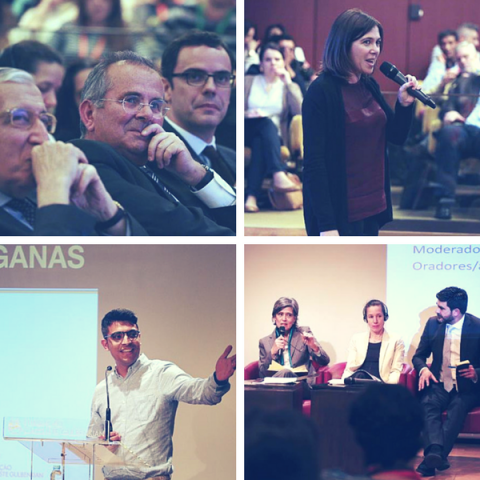Portuguese government to take over ROMED2 in 2018 for several new municipalities
Rejoicing news for Roma participation in Portugal came during last week’s events of 5 and 6 April.
The series of encouraging developments began with the ROMED2 National Workshop in Seixal on 5 April, with the participation of municipalities involved in ROMED2 since 2013 but also two new municipalities (Viseu and Agueda) interested in taking on the ROMED2 approach to Roma participation. On the following day, within the International Seminar on Roma Communities organised by the High Commissariat for Migration (ACM), Ms Catarina Marcelino – State Secretary for Citizenship and Equality announced that as of 2018, ROMED2 will become part of the governmental approach to addressing Roma issues.
“We are going to get inspiration from already existing experiences that have done this on their own, but we are going to launch the challenge to a group of municipalities that want to join us in this approach and create municipal plans," said the Secretary of State, noting that this challenge will be made after the upcoming local elections due in October 2017.
Learn more on the ROMED2 methodology and experiences.
The International Seminar held on 6 April in Lisbon at the Fundacão Calouste Gulbenkian benefitted from the presence of other international organisations (Council of Europe, EU’s Fundamental Rights Agency, OSCE - ODHIR, Fundación Secretariado Gitano), various relevant institutions working with Roma in Portugal, as well as the ROMED Municipalities, Community Action Groups and the National Support Team. Its aim was to launch the revision of the National Roma Integration Strategy, where the ROMED methodologies and approaches are bound to become an essential part, following last week’s discussions.
Mr Carlos Miguel – State Secretary for Local Authorities and former mayor of Torres Vedras, involved in ROMED2 since its inception, took a strong stance on the importance of mediators and the urgent need for the recognition of the profession in Portugal.
"We know that mediation works. We have the Opré [Chavalé] programme for university students, and we need more effective measures in all levels of education up to the secondary cycle, which is when most drop-outs occur" he concluded.
Learn more on Roma mediators and ROMED1 methodology.
Although ROMED as a Joint Programme of the European Commission and Council of Europe has now been completed, its methodology will still be used within various contexts. Following the visit of Council of Europe’s Commissioner for Human Rights in Portugal and Torres Vedras, Portugal sets the example and brings about a new commitment at national level which guarantees the sustainability of Roma participation in the municipalities involved since 2013 and the extension of the paradigm to other municipalities.
Photo credits (c) Alto Comissariado para as Migrações - ACM, I.P.

